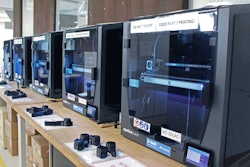
The ongoing supply chain disruption has caused chaos in nearly every industry across the board. Whether it’s the automotive industry having to forgo HD radios in cars due to a shortage of chips, or the consumer goods sector reporting a shortage of specific food items, electronics and clothing, no one has been left unscathed. This crisis has forced people to think, act, and plan differently.
Manufacturers have had to adopt an agile mindset and integrate their product and business strategies into one. Looking at the impact of product and business decisions at a single roadmap view allows a manufacturer to understand the outcome more precisely and simplifies the process.
Another valuable component in shifting traditional processes when dealing with the current supply chain crisis is implementing technology for easier communication across departments. Opening up data and communication company-wide brings a level of transparency that eliminates the responsibility of one person and holds all parties accountable. Instead of relying on the sole person maintaining the third-party vendor relationship, all elements of the business can identify a possible disruption and its impact on the greater business plan, allowing them to plan before it poses a major issue.
Agile is changing the product manager role
So how does the shift to these agile processes occur? Organizations must first understand the positive impact that digital changes can have on the business and make the intentional decision to implement these innovative tools company-wide. Getting everyone on the same page and enforcing a new collaborative process is crucial to executing the business and a product plan with the least amount of disruption possible. By utilizing new processes and a single source of data, the company has the power to function in a more agile way.
While manufacturers turn to new tools to help remedy issues caused by the supply chain, a large amount of responsibility falls on product managers to stay ahead of these disruptions. The list of tasks that a product manager takes on is endless, but ensuring their products are ready for market is crucial.
The role of a product manager is ever-changing— while their topline job description is to oversee the development of a product from start to finish, it spans way beyond that. These individuals must stay at the forefront of customer and market demand, always anticipating new trends and developments in preparation to modify product plans.
Always have a Plan B
In an era of severe supply chain backups, product managers have learned to keep a tighter rein on their product plans and explore back-up options in case of disruptions. Keeping to timelines is crucial in this industry, and product managers must have solutions for every possibility, whether it’s adding more time to source materials, sourcing from another vendor, or scrapping a part all together.
Keeping the end-user in mind is a very important responsibility that a product manager faces. As the human environment changes, our desires and demands fluctuate. Consumers want the best of the best at a reasonable price in a quick amount of time. It’s up to the product manager to anticipate this behavior before trends are even recognized and implement them within the product plan. An important of a product manger’s role is that the initial plan is never executed without multiple changes. Because the end-user is the focus, all aspects of planning revolve around them.
Technology makes the product development phase more complex, but it also simplifies parts of the process. While product managers once had to prioritize functions including strategy design and visualization, financial analysis, and scheduling, today they are able to pass that off to AI and automation while putting their focus on time and human decision-making. Over the next few years, technology will continue to disrupt every industry and present incredible solutions to simplify the product manager’s role. Whether it’s smart technology or accelerated software, these individuals will be able to optimize their time to develop solutions to impact future generations and better build products customers want.
With all the negatives the supply chain crisis has caused, there are some valuable progressions that have come out of it. It has caused both corporations and individuals to take a step back and tap into a more strategic mindset and dedicate more time and money to technology, resources, and processes.













